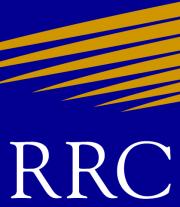No Success without Learning to Fail
May 25th, 2016
 “Fail Forward” is the mantra of entrepreneurs. Take risks. You will fail, guaranteed. Learn from it. Once a little smarter, boldly launch again. Instead of meeting failure with crimson shame and pink slips, entrepreneurs believe, as Robert Kennedy did, “to achieve greatness, you have to fail greatly.”
“Fail Forward” is the mantra of entrepreneurs. Take risks. You will fail, guaranteed. Learn from it. Once a little smarter, boldly launch again. Instead of meeting failure with crimson shame and pink slips, entrepreneurs believe, as Robert Kennedy did, “to achieve greatness, you have to fail greatly.”
David Bryfman, Chief Innovation Officer at The Jewish Education Project, introduced the concept of “fail forward” at a Jewish Futures Conference in New York City.
“I’m quite proud the community has embraced the idea. I hear the phrase ‘fail forward’ repeated more than anything else I’ve put out there.” An innovation guru who keynotes from London to Jerusalem to Sydney, David confesses it is a lot easier to teach fail forward than to enact it.
David recounts his own journey of learning to fail forward. It takes time to embrace the idea “that you can both have high standards and recognize we are not going to get everything right.” David says, “I try to let people I work with know that we are all in this together. If they fail, we all fail.” To ensure his team feels safe enough to take risks, including the risk of failure, David applies lessons he learned from a very unexpected teacher—a funder.
The Jim Joseph Foundation, a national grant maker committed to fostering compelling, effective Jewish learning experiences for young Jews, has been David’s mentor in learning to fail forward. As Foundation professionals work with him to reshape teen engagement, David notes, they consistently model this best practice of failing forward. David strives to replicate lessons learned from the Foundation with his own team.
Lessons learned:
1. Earn Trust
As the Foundation began working with David, they sought information not easily discerned from a grant proposal or a resume. They wanted to know David as a person. They also wanted him to get to know them. “A couple of years ago, I was at a conference in Florida,” recalls David. “A senior program officer at the Jim Joseph Foundation said ‘let’s go for a walk. We are not going to talk about business. We are going to talk about our lives.’” Skill alone doesn’t earn the trust needed to navigate unchartered territory. Character matters. Anyone who knows David, affectionately referred to as Bryfy, knows he is a principled man.
“Trust goes both ways,” remarks David. “I know the Foundation is not trying to catch me. We have mutuality and respect. Once you experience that, there is not a long jump to say we are in this together.”
David works to build mutual trust with his own staff. Despite working at a “million miles an hour like all entrepreneurs do,” David says he forces himself to slow down to spend time with his team. When he doesn’t, the team suffers. Without that time, “you don’t really get to know someone to build the trust.” Despite his best intentions, the day to day sometimes leaves him wishing for more relationship time.
Too often, non-profit leaders fear retribution for failing to meet funders’ expectations. The Jim Joseph Foundation, says David, understands that innovation only happens through learning from successes and failures that naturally occur on the innovation path. “We have not been worried about our failures when we have tried something that has never been done before. The Foundation has stood behind its multi-year commitment to work with us to keep improving.”
Post-mortems on data follow the Foundation’s agenda of inquiry:
David works with the executive team at The Jewish Education Project to create a culture of inquiry and learning. By providing regular professional development, David ensures his team has the time and the skills to collect data, analyze it, learn from it and be agile enough to re-direct strategy based on what is learned. Learning to fail forward is a long-term commitment. Removing blame and replacing it with inquiry and learning enables The Jewish Education Project to be a national leader in educational innovation.
Failure is an engine of innovation only when it is accompanied by accountability. Holding people responsible for assigned work, deadlines and outputs is imperative. David is happy to do the required reporting to the Foundation. Accountability is a practice he experiences with the Foundation through formal channels like regular reports, and through more informal but regular communication.
David strives to replicate the “just right” balance of failure and accountability with his team. “I have high expectations and high standards,” David notes. “We try new things all the time. If we don’t do it right the first time, I don’t care. The second time it is slightly clearer what has to be adjusted. But by the third time, I have some serious issues.” David says his message is “There is room for learning over time. Together, we have a fail forward mindset. And you have to be held to the highest standards.”
There is no success without learning to fail. David is learning, teaching and enacting this key entrepreneurial mantra. He is willing to reveal honestly how hard it is to instill the practice of fail forward. He also insists it is necessary to earn trust, enable inquiry and hold people accountable so they can take risks, learn from failure and innovate for our changing world. David is willing to do the hard work of failing, because not succeeding has cosmic ramifications.
“What keeps me up at night?” he tells me, is the question. “How will this work make the Jewish people better off?”
Source: “No Success Without Learning to Fail,” Reconstructionist Rabbinical College Blog, May 13, 2016